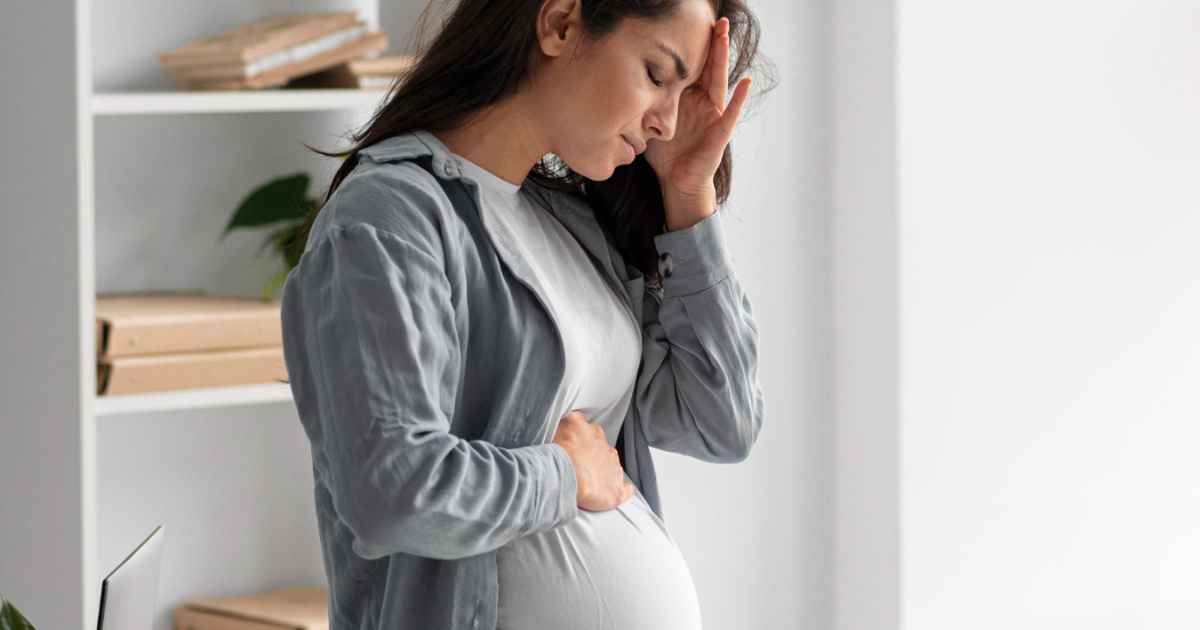Dizziness During Early Pregnancy
Feeling lightheaded or dizzy is a common experience for many women in the first trimester of pregnancy. While it can be unsettling, it’s usually nothing to worry about. Let’s explore what causes dizziness during early pregnancy, how to prevent it, and understand when to seek medical attention.
Understanding Pregnancy Dating
It’s important to remember that pregnancy dating typically starts from the first day of your last menstrual period (LMP), even though conception (fertilization) occurs around weeks 2-3. So, you might not technically be experiencing pregnancy symptoms yet during week 1 of this dating system.

Causes of Dizziness in Early Pregnancy
- Hormonal Changes: Pregnancy triggers a surge in hormones, particularly progesterone. This hormone relaxes blood vessels, leading to a slight drop in blood pressure, especially when standing up quickly.
- Increased Blood Volume: Your body ramps up blood production to support your growing baby. While essential, this initial increase can strain your circulatory system and contribute to dizziness.
- Dehydration: Morning sickness and vomiting can lead to dehydration, which further reduces blood volume and worsens dizziness.
- Low Blood Sugar: Pregnancy can cause fluctuations in blood sugar levels. Dips in blood sugar can lead to feelings of lightheadedness and fatigue.

Dizziness by Early Pregnancy Week (Weeks 1-4)
- Weeks 1-2: Due to the LMP dating system, you likely aren’t experiencing pregnancy symptoms yet during these weeks.
- Week 3: Implantation of the fertilized egg in the uterus can occur around this time. Hormonal changes might begin, but dizziness is uncommon this early.
- Week 4: As hormone levels rise more significantly, dizziness becomes a more potential symptom in week 4 and beyond.
- Interesting Fact: Studies suggest that around 70% of pregnant women experience dizziness during the first trimester.

Preventing Dizziness During Early Pregnancy
- Stay Hydrated: Drink plenty of fluids throughout the day, especially if experiencing morning sickness. Aim for eight glasses or more of water.
- Eat Regularly: Don’t skip meals. Frequent small meals help regulate blood sugar levels and prevent dizziness. Opt for complex carbohydrates and protein for sustained energy.
- Stand Up Slowly: Avoid sudden changes in position. When getting out of bed or a chair, take a moment to sit on the edge before fully standing up.
- Avoid Hot and Crowded Places: Hot environments can worsen dizziness. Opt for air-conditioned spaces and avoid crowded areas where getting overheated is more likely.
- Wear Loose Clothing: Tight clothing can restrict blood flow and exacerbate dizziness. Choose loose-fitting garments that allow for comfortable circulation.
When to See a Doctor
- While occasional dizziness is common in early pregnancy, consult your doctor if you experience:
- Severe or persistent dizziness
- Dizziness accompanied by fainting or near-fainting
- Vaginal bleeding or severe abdominal pain
- Vision changes or headaches
- Difficulty breathing
Conclusion
Dizziness during early pregnancy is a common experience and often resolves on its own with self-care measures like staying hydrated and eating regularly. However, if you experience severe or persistent dizziness, it’s important to consult your doctor to rule out any underlying conditions. By understanding the causes and taking preventive steps, you can minimize the discomfort of dizziness and enjoy a healthy pregnancy.